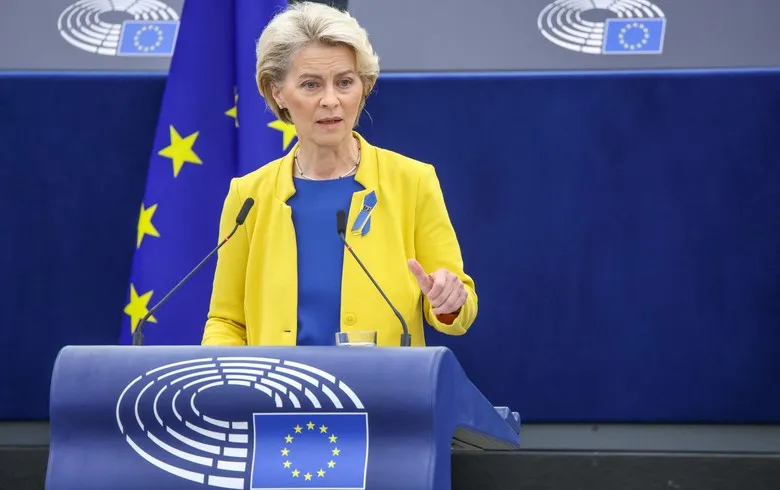EC proposes windfall tax on lower-cost generators, they wish it is temporary
- In an effort to manage soaring energy rates, the European Commission (EC) on Wednesday suggested an emergency situation treatment in Europe's power markets, consisting of the intro of need decrease actions and a revenue cost cap on lower-cost electrical energy manufacturers.

Talking at her third State of the Union address, EC president Ursula von der Leyen stated that the commission proposes a commitment to cut power intake by at least 5% throughout picked peak price hrs as well as a target for Member States to reduced overall electrical power demand by at least 10% until completion of March 2023.
The EC likewise tabled a proposition for a temporary revenue cap of EUR 180 (USD 179.82) per MWh on "inframarginal" electrical energy generation business, implying those counting on lower-cost technologies such as renewables, nuclear and also lignite. Revenues above the cap will be accumulated by the federal governments of Member States as well as rerouted toward power customers to help reduce their expenses.
"These business are making revenues they never ever accounted for, they never even dreamt of," president von der Leyen emphasized.
In addition, the commission proposed a temporary uniformity contribution from fossil fuel business not covered by the inframarginal revenue cap. These payments would certainly be accumulated by Member States as well as redirected to help power customers, money cross-border projects or measures to shield work or promote financial investments in renewables as well as power efficiency.
The EC estimates that its proposals would elevate over EUR 140 billion for Member States to cushion the blow directly, including EUR 117 billion from the windfall tax and also about EUR 25 billion from the solidarity contributions.
"These unmatched actions are a needed response to the power supply scarcities as well as high energy prices influencing Europe. Need decrease is basic to the total success of these actions: it decreases energy costs, finishes Putin's ability to weaponise his power resources, lowers exhausts and also helps rebalance the power market. A cap on outsize revenues will certainly bring solidarity from energy companies with unusually high earnings towards their battling consumers. Most importantly, nonetheless, this situation underlines that the age of affordable fossil fuels is over and that we require to increase the switch towards homegrown, renewable energy," mentioned Executive Vice-President Frans Timmermans.
The proposals are to be reviewed by EU Energy Ministers at a phenomenal Power Council set up for September 30, 2022. If removed, the procedures will come to be reliable for a period of one year, with an alternative to be prolonged if needed.
In the meantime, the commission continues its pursuit of various other methods to bring down rates for European consumers and also market.
"WindEurope sustains the objective of supporting the influence of high power prices on households and companies. Yet national caps that differ an EU-wide cap would certainly create a patchwork that would undermine financial investments in renewables," the association claimed in a declaration.
The wind sector body is fretted that the proposal would enable Member States to go even more in restricting the revenues of inframarginal power producers and that the already presented price caps could be maintained. "That's not useful," it stressed.
"The EU wants a massive growth of renewables to help leave the present energy situation. That suggests lots of new investments in wind and also solar. However investors require presence. So an EU-wide cap on revenues from wind ought to be specifically that-- a single EU-wide cap. Permitting countries to deviate from it as well as have lower caps produces confusion and also assurance-- and also will certainly reduce the financial investments we so badly require," commented Giles Dickson, CEO of WindEurope.
Swedish utility Vattenfall AB consented to the value of procedures for demand decrease yet explained that the suggested revenue cap "risks hindering financial investments into new fossil-free electrical energy," stressing that the proposal needs to be temporary.
"It is likewise crucial to think about that lots of electricity manufacturers hedge their production and also consequently are not taking advantage of high electrical power rates to the exact same extent," the business said in a statement, adding that it will certainly further evaluate these measures to determine their possible impact on its business.
Simone Peter, president of German renewable energy association BEE, is of a similar viewpoint. She claims that the revenue cap need to be temporary and also think about the ramifications for lasting contracts, especially for sustainable power acquisition agreements (PPAs). The cap ought to not restrict the freedom of investment in renewables as well as there are a number of unsolved concerns that need to be talked about thoroughly in further considerations, according to her.
German power monitoring consultancy enervis energy experts GmbH estimates that the suggested price cap would cost regional power producers a total of EUR 30 billion in 2022, if the procedure is retroactive for the whole year.
Also read
- ACWA Power, Danantara ink $10bn Indonesian green energy landmark pact
- Ardian Appoints Bruno Bensasson as Akuo's New CEO
- Emeren Brings In Boralex Veteran for U.S. Arm, Flags $20 Million Q2 Impairment
- Congress Clears Trump-Backed Bill Slashing Clean-Energy Tax Breaks
- BSR Secures €400M for UK Solar and Storage Expansion
